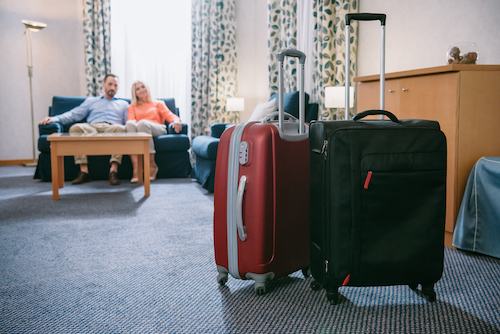by FC Exchange
Moving your life from one country to another gives you so much to think about; whether it’s applying for visas, researching private healthcare, finding work, or sending your money overseas, it can be a busy time.Our currency partner Global Reach outlines some of the top things you need to think about before you relocate overseas, to help you plan your next steps.
Visas
Visas are one of the most important parts of your move, and depending on where you’re going, it can be a long and sometimes expensive process. There are different visa processes all over the world, but some might have some restrictions that limit your chance of relocating. For instance, if you want to move Down Under, you’ll need to bear in mind there are strict emigration policies which might stand between you and your visa. If you already have family there, they can sponsor your move, but there are also skilled work visas on offer for certain areas of work. There’s also a cut-off age for applying for working visas Down Under—Australia is 50 and New Zealand is 55.
If you’re moving to a country and plan to apply for some kind of skilled work visa, check with your new destination’s government website which should highlight what areas are in need. Sometimes you’ll need to have an offer of work from a business before you’ll be offered a visa too, so it can be a good idea to speak to some specialist recruiters.
Property purchases
If you’re moving abroad, you might be choosing to buy a new home. It might be an apartment near the beach, or a spacious villa with land, but whatever you buy, make sure you check for the basics. Research your chosen country and ensure that the estate agent has the correct credentials to sell property.
Additionally, hiring your own legal advisor who is separate from the estate agent can prevent a conflict of interest, and can ensure you’re covered properly, and aren’t inheriting any debts or charges that the property may have acquired from a previous owner.
Healthcare
Take a look at the healthcare on offer in your chosen country and ensure you’re happy with the standard and can get covered for everything you need, from a trip to the GP, to the dentist and emergency trips to hospital.
A lot of expats look to get private healthcare so that they can be seen quicker or enjoy better facilities and are covered for costs which might otherwise be chargeable. Some countries require expats to have a healthcare plan before they’ll be offered a visa too, so it’s worth doing your research.
Working
As we’ve mentioned in the visa section, some companies require you to have a job placement before they’ll issue you with a visa. There are UK businesses who focus solely on getting Brits in jobs abroad, so you can start a conversation with them if you think it might be useful.
Additionally, there are a number of businesses that focus on specific sectors or work abroad. For instance, if you’re a nurse, there may be companies that just work to recruit healthcare professionals, and they can sometimes help you find work quickly and easily, so it’s worth looking around. There are also online job sites, and the option to visit the place you want to expatriate to in order to network, attend interviews, and follow other job leads while you’re there.
Sending money abroad
You may need to continue sending money back home once you’ve moved, or you might have another need for regular overseas payments. Whether it’s mortgages, salaries, pensions, or something else, consider speaking to a currency expert about your money transfer. When comparing exchange rates, a few digits may not seem like a big difference, but on a lump sum or frequent payments it can soon add up considerably.
For instance, if you made a transfer of £200,000 to Australia when the exchange rate was 1.82, you might receive in the region of $364,000. However, if you were offered a different rate of 1.86, you might receive $372,000 – giving you more currency for your money.
With three offices in the UK as well as in South Africa and Cyprus, FC Exchange has a wealth of experience in the foreign exchange sector. Fully authorised by the FCA and holding an additional level of authorisation as an Authorised Electronic Money Institution, they offer both security and flexibility in making international payments. The company has a genuine focus on customer service with a 5-star Trust Pilot rating and 50% of business coming through word of mouth. Privately owned, FC Exchange has been recognised by the Best Companies Accreditation Standard 2016 as offering a high level of employment engagement to its staff. Learn more at www.fcexchange.com

